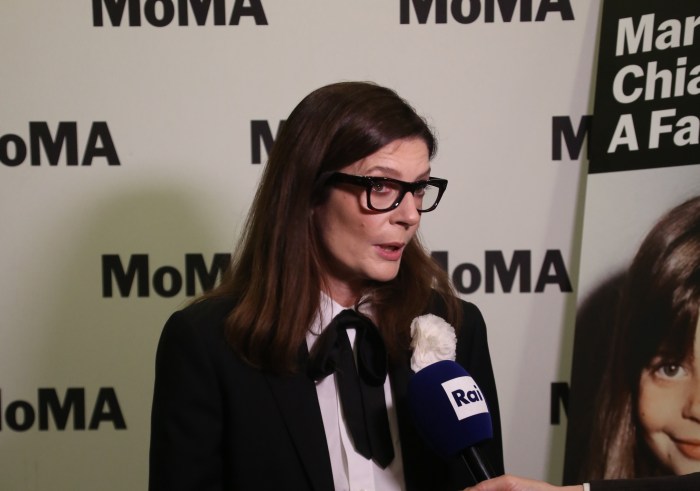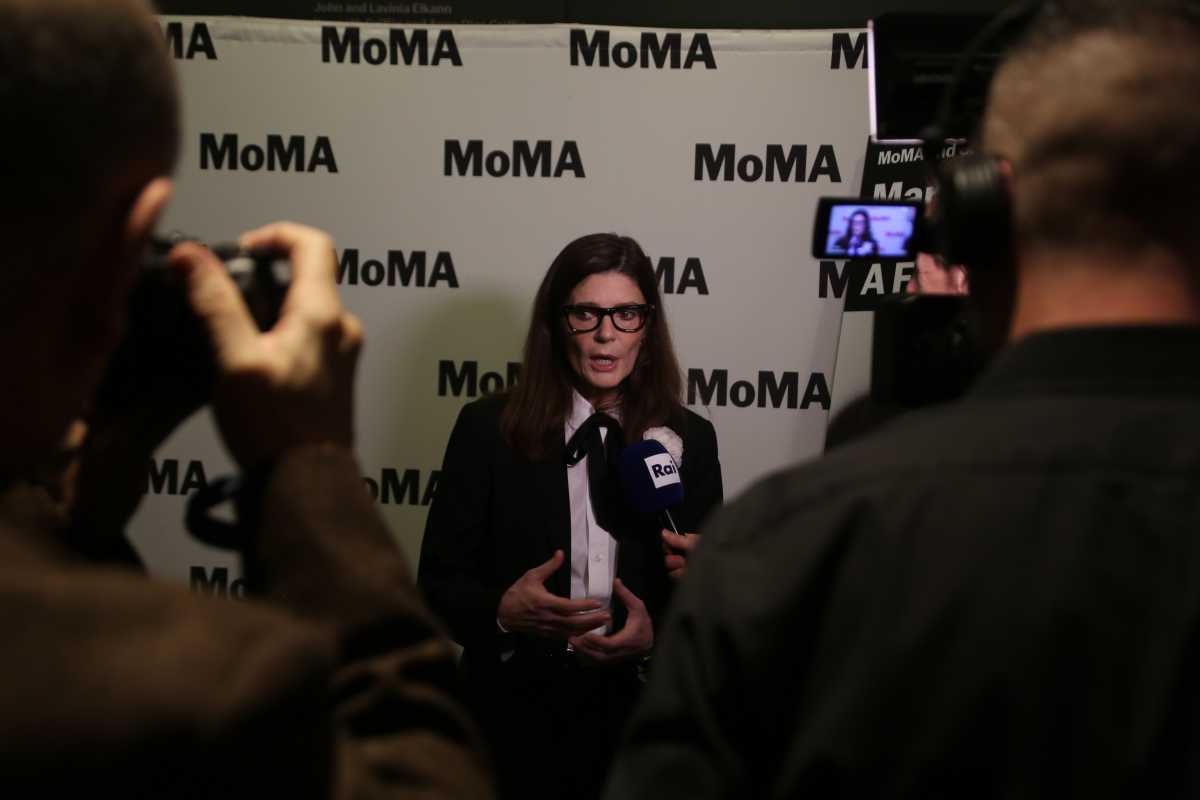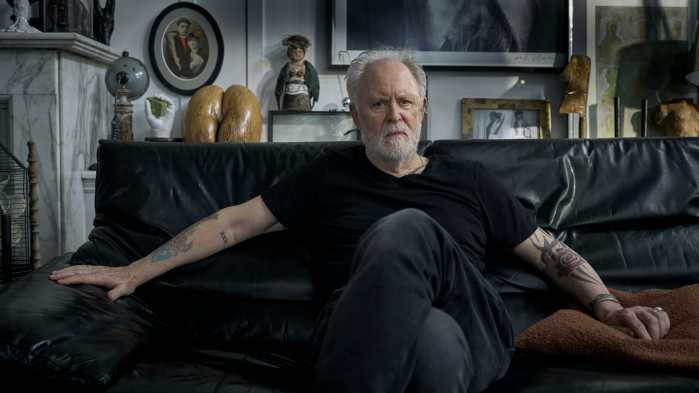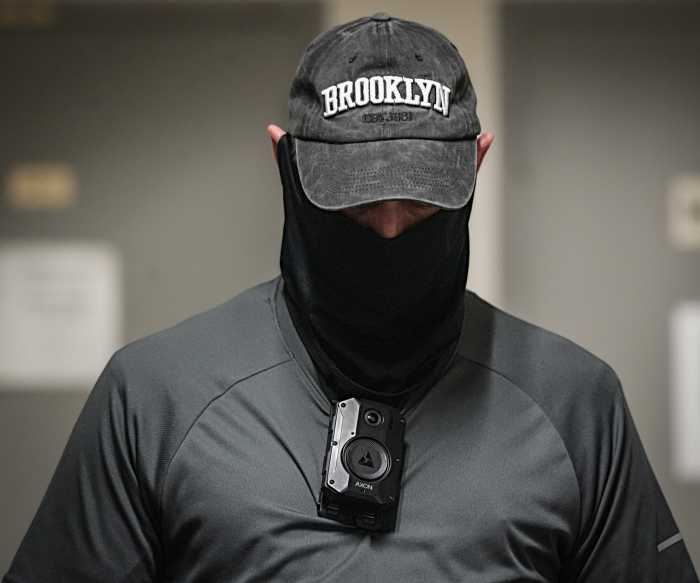I have long found it to be one of the most striking films in Italian cinema, partly because of who stars in it, as well as the subject matter — groundbreaking for its time. Having first seen it as a child, it’s always been among my favorite Sophia Loren films. Considering her massive body of work, as well as that of her co-star in the film, Marcelo Mastroianni, that is saying a lot.
“Una Giornata Particolare,” or “A Special Day,” directed by Ettore Scola, and produced by Loren’s husband Carlo Ponti, tells the story of Antonietta, an undereducated, overworked Roman housewife with a fascist husband and many children, and the gentle Gabriele, a former radio personality fired for being gay. The 1977 film takes place over the course of a single very special day indeed, in May 1938, when Adolf Hitler visited Benito Mussolini in Rome, further solidifying the alliance between the two fascist leaders. The setting is a 1930s streamlined modernist apartment complex of the type built on the outer edges of Rome under Mussolini’s leadership. With everyone else out for the festivities, the two spend the day with each other as Gabriele waits to be taken to a prison camp.
Mastroianni and Loren are two of the most sensual and glamorous stars of Italian cinema, yet here they play characters that are the complete antithesis of everything they are known for. Every time I do laundry, I think of a scene with Loren squeezing the crotches of her family’s freshly cleaned pants to test if they dried on the rooftop clothing line. Mastroianni, normally a masculine heartthrob, plays a sensitive, intellectual gay man, broken by circumstances and struggling for dignity as his world falls apart.
Thanks to that performance, Mastroianni’s daughter, Chiara Mastroianni, told Gay City News it is one of her favorite movies her late father did (Marcelo Mastroianni died in 1996). Indeed, surprisingly, it seems it is one few people ask her about.
In New York last month for the Museum of Modern Art’s retrospective honoring the 100th anniversary of her father’s birth, Mastroianni — whose mother is Catherine Deneuve — told Gay City News, “I love that film.”

The restored film, considered among the 100 most important for preservation to represent Italian cinema, was part of the retrospective produced in conjunction with Cinecittà, the film studio on the outskirts of Rome, it too a project created under Mussolini.
“He was very attached to that film for many reasons,” Mastroianni said, adding, “first of all, because it was Ettore Scola with whom he had a very strong bond, and they had worked together a lot. Obviously, Sophia Loren, but also the subject. I think for him, it was very important. If you put things back in the context, in the ’70s, to do a movie, you take a big Italian icon to play a homosexual man who gets deported by the fascists.”
At the time she and I spoke, the film “Queer,” with the uber-masculine Daniel Craig — of James Bond and other adventure film fame — was also about to premiere. Many straight heartthrobs have, by now, starred as gay men, often getting Oscar nods just as Mastroianni did. Yet in the 1970s, this was groundbreaking, especially in Italy.
“My dad did not make big sentences about politics, but he was very politic[al] in the choices he made of the specific subjects he wanted to talk about in the films,” Mastroianni said, continuing, “Una Giornata Particolare is really one of those that represents the most for him. It was really important in that specific time, to be able to play that character. Because, of course, it’s something that was not, would not, be expected from an actor back then.”
However, Mastroianni said, “Nowadays, you know, we are like 40, 50, years after, everything seems normal. But back in those days, in Italy [it was] a very archaic society. It still is, you know, so to have an icon like this without doing a performance, it’s very natural the way he acts and very sincere. And I think it mattered to him a lot to be able to give a voice, specifically, in those days in that country.”
How much Italy has advanced on issues related to LGBTQ rights seems up for debate according to Mastroianni, who added, “It’s a very homophobic country, unfortunately.”
While she did not comment specifically on Italy’s current politics, the country is now governed by the nationalist Brothers of Italy or Fratelli d’Italia party, often described as neo-fascist. Italy’s Prime Minister Giorgia Meloni recently paid a visit to President-elect Donald Trump in Florida at his Mar-a-Lago mansion. The two are both known for their anti-LGBTQ rhetoric and other conservative stances.
Despite issues within Italy then and now, Mastroianni mentioned to Gay City News the importance of works by openly gay director and actor Pier Paolo Pasolini, who may have influenced how her father took on the challenging role. “The legacy of Pasolini also, and all these authors and I think my father, for him, it was very important as an actor, but also as a human being,” she said.
In 2015 soon after her memoir “Yesterday, Today and Tomorrow: My Life” came out, I interviewed Sophia Loren for the New York Times. Loren told me that A Special Day was also among the films she favorably remembered, saying “my success is The Gold of Naples, Marriage Italian Style, Two Women, A Special Day, and so on, and people appreciate it so much that it’s really, really incredible and they have stuck in their minds and I am very proud of it.”
For Mastroianni, her father’s role as a gay man is also something she can perhaps understand. As part of the retrospective, her own film about her father, “Marcello Mio,” had its North American premiere. Not quite a documentary nor a biopic, she dresses up as him in a gender-queer romp through Paris and other locations. It takes on sensitive issues of sexual identity and conjures both the mysterious serendipity as well at times negative experiences those transitioning encounter when their choices anger the people who claim to love them.
“I love talking about that film, because it’s very important work that my father did,” Mastroianni told Gay City News.



































